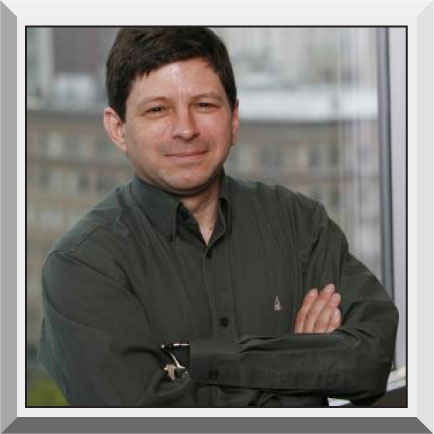 If you haven’t met Steve Novick, candidate for Portland’s City Council Position 4, you’re missing out. We’ve known him as a Tom Dwyer client for years, but most people know Steve from his 2008 primary battle with Jeff Merkley to unseat Senator Gordon Smith. State primary battles don’t usually make national news, but Steve’s did. It wasn’t the issues as much as the breakout style of his commercials: “Beer with Steve”, “To Tell The Truth”, and “Not Prettier,
If you haven’t met Steve Novick, candidate for Portland’s City Council Position 4, you’re missing out. We’ve known him as a Tom Dwyer client for years, but most people know Steve from his 2008 primary battle with Jeff Merkley to unseat Senator Gordon Smith. State primary battles don’t usually make national news, but Steve’s did. It wasn’t the issues as much as the breakout style of his commercials: “Beer with Steve”, “To Tell The Truth”, and “Not Prettier,  Just Better” have garnered over 250,000 views on YouTube and led to interviews on MSNBC, Fox, and more. He narrowly lost that election to now-Senator Merkley, but the State’s loss could be the City’s gain if Steve Novick’s Progressive vision, energy, and integrity can find a seat on the City Council…
Just Better” have garnered over 250,000 views on YouTube and led to interviews on MSNBC, Fox, and more. He narrowly lost that election to now-Senator Merkley, but the State’s loss could be the City’s gain if Steve Novick’s Progressive vision, energy, and integrity can find a seat on the City Council…
 Steve was born in New Jersey in 1963, and his family moved to Cottage Grove, Oregon ten years later. Budget problems closed the Cottage Grove schools in 1976, but ninth-grader Steve was ready to move on anyway. He enrolled at the University of Oregon, graduated in 1981, and then went on to Harvard Law School where he earned his law degree at age 21. Steve worked briefly at law firms on both coasts before joining the Environment Division of the United States Department of Justice, litigating violations of the Clean Air and Water acts and serving as lead counsel on the Love Canal toxic waste cleanup.
Steve was born in New Jersey in 1963, and his family moved to Cottage Grove, Oregon ten years later. Budget problems closed the Cottage Grove schools in 1976, but ninth-grader Steve was ready to move on anyway. He enrolled at the University of Oregon, graduated in 1981, and then went on to Harvard Law School where he earned his law degree at age 21. Steve worked briefly at law firms on both coasts before joining the Environment Division of the United States Department of Justice, litigating violations of the Clean Air and Water acts and serving as lead counsel on the Love Canal toxic waste cleanup.
In 1996 Steve came back home and continued to be a strong advocate for Oregon interests. His resume includes chief of staff for the Oregon Senate Democrats, the Center for Constructive Citizen Action’s successful fight against Bill Sizemore’s Measure 91, fighting waste in the Oregon Lottery, member of the Board of the Oregon Environmental Council for over a decade, and Program Committee of the Portland City Club. Steve now works with the Oregon Health Authority on ways to simplify the Medicaid application process, and is helping the state prepare for the Medicaid expansion when Obamacare takes effect in 2014.
We covered a lot of ground when we talked with Steve about his council run, but a couple of his ideas particularly stood out- his ideas on police funding and healthcare.
When it comes to police, Steve pointed out that the way the justice system is funded has a lot to do with how it meets the public. “It’s currently a very disjointed system. The City hires the police, the County runs the jail, parole, drug, and mental health programs, and the State funds the prisons. They are all separate agencies with separate agendas, and it leads to each agency doing its own job without considering the impact on the other agencies. Police officers end up spending large amounts of their time as first responders to people with mental health issues rather than the jobs they are trained to do. I think the City, County, and State should sit down to combine their budgets into a lump-sum for public safety and set priorities and strategies within that budget.” This would give the agencies flexibility in how they spend their dollars and how they work together to achieve their ends.
For instance, in a situation where an offender is eligible for a 5 year prison sentence a DA might (in consultation with the other agencies) choose 3 years of prison and 2 years of less-expensive ankle monitoring in order to make dollars available for treatment of 2 other mentally ill people who have had run-ins with the law. “An exception to that would be crimes like murder, rape, or other sexual assaults”, which would not be included in the lump-sum budget. “This is very much like Governor Kitzhaber’s approach to health care, in which the total amount of health care money can be balanced between ‘reactive’ and ‘preventative’ medicine”, making the patient’s total health care the goal.
Another of Steve’s proposals involves an innovative way to make Portland attractive to business “I don’t think strategies like cutting business taxes or building sports arenas are good for long term development. Businesses and people like the things that come from taxes, things like schools and roads. Sports are fine, but the kind of business you want to attract is the kind that sells goods to other people and brings the money back home.” Steve’s idea is based on an idea from Atlantic City where the casino workers union, which is self-insured, was looking for ways to cut costs. “They found that a large part of their cost was driven by a very small percentage of people. Consultants told them that if they could get this group of people to take better care of themselves they could see significant cost reduction.” So the union set up a free clinic staffed with a couple doctors and nurses, but focusing on health “coaches” who helped the problem clients remember medications, stay on exercise programs, modify their diets, and get to scheduled appointments. After twelve months in the program emergency room and hospital visits were down more than 40% and surgeries were down by 25%. The patients were healthier overall, they saw major improvements in blood pressure and cholesterol, and a significant percentage had stopped smoking.
“I read about this program and thought what a powerful it could be for the City in business development”, Steve said. He thinks the City could start a pilot program, similar to the Atlantic City model, for its own employees. From there the County and School Districts could join in, and form a network of these health coaching clinics. With the bugs worked and the benefits proven, the program could be offered to private employers as an incentive for relocation. “Most companies know health care is killing them, but unless you’re a very big company it doesn’t make sense to start a program like this individually. But if the City did it and was able to offer it, I bet a lot of businesses would be glad to come into the network.” As Steve points out, “one of the best things about the Atlantic City program was that it was an example of the union taking charge of their own future by thinking outside the box. It was a very ‘Portland’ solution.”
These are only a small sample of Steve’s unique and powerful ideas for Portland, but it should give you a good sense of his priorities and approach to complex problems. His website has much more detail on each, and also describes his plans to improve education, equity of city services, and more. Steve has built his career fighting to protect the environment, fighting for transparency in public spending, and fighting for effective and responsible government. He’s in another fight now, one to serve the people of Portland. We hope you’ll consider Steve and his passionate service in the May elections, and that you too will support Steve Novick, “the fighter with the strong left hook”.










